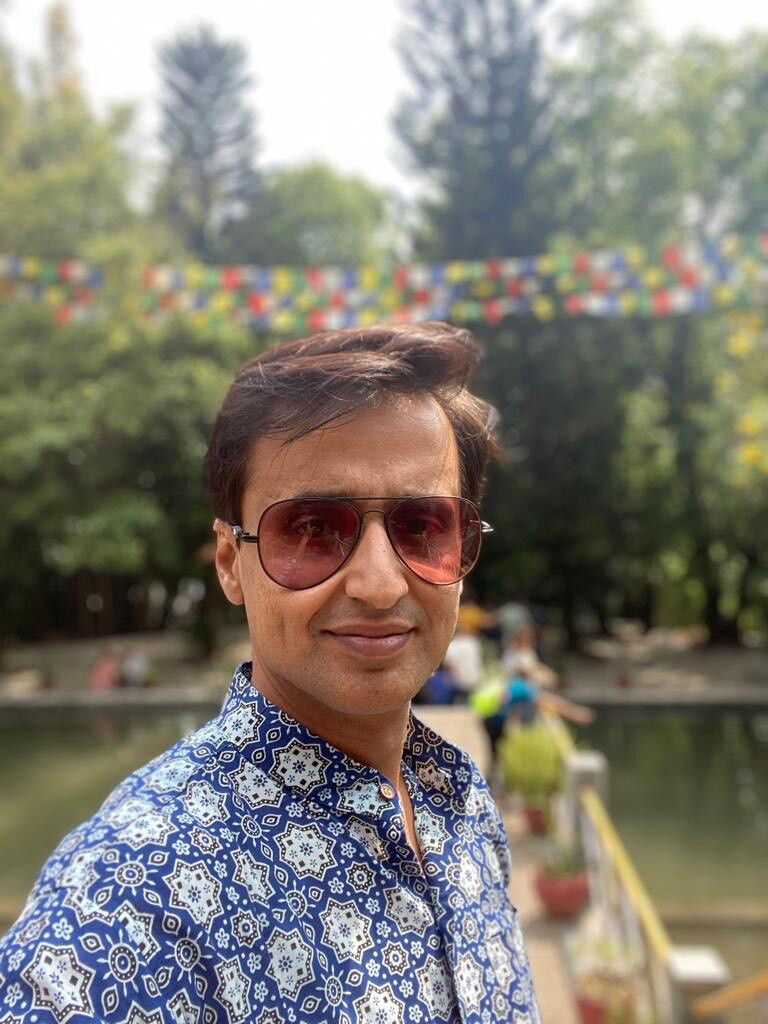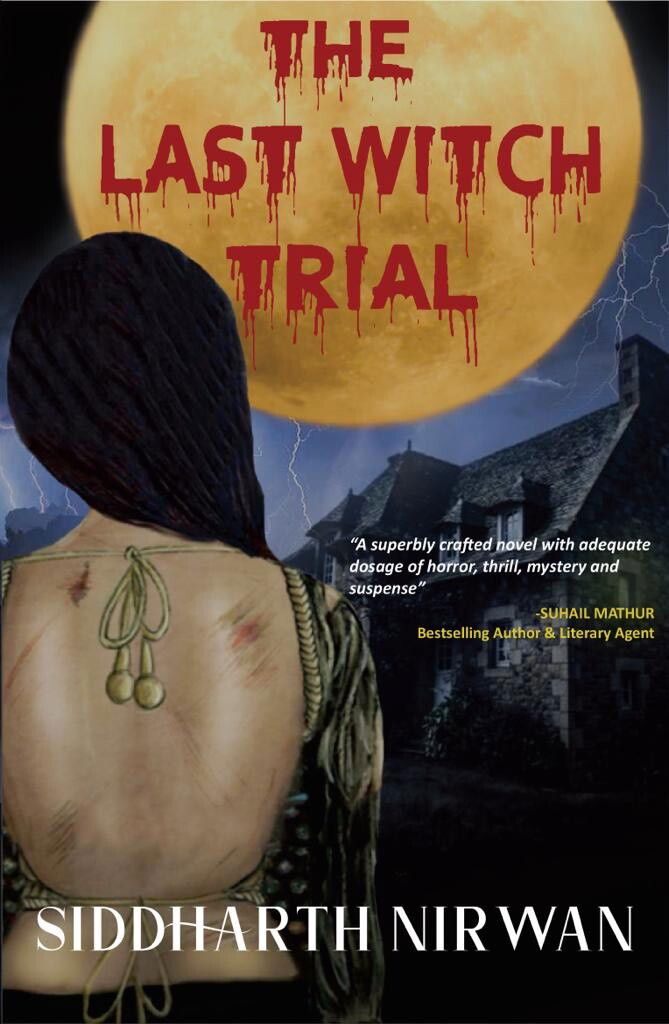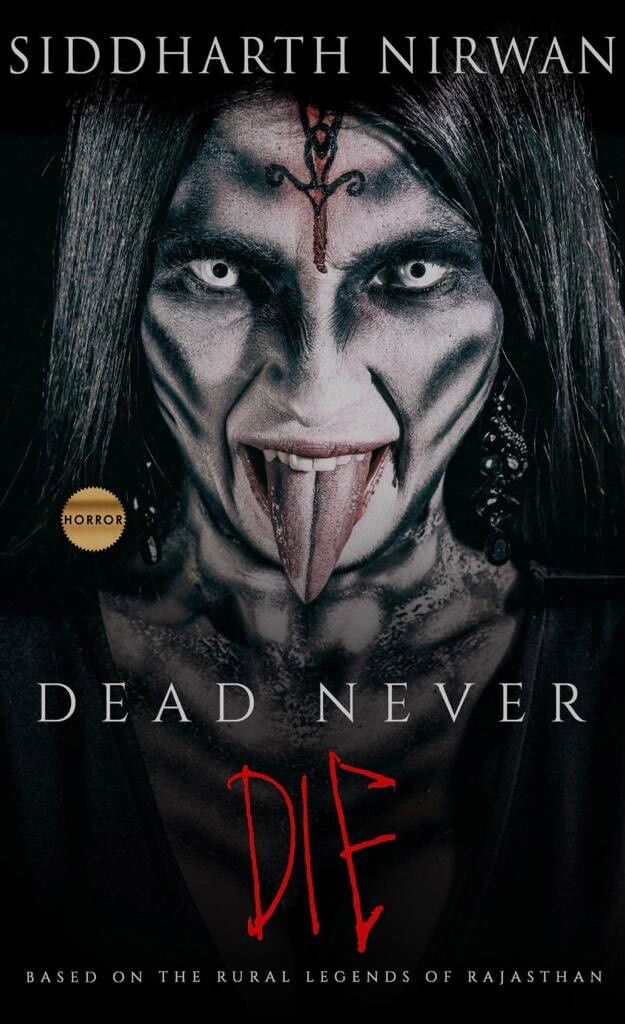Behind the Shroud of Horror: An Exclusive Interview with Siddharth Nirwan

In the realm of literature, few authors possess the unique duality of being both a medical professional and a masterful storyteller of the macabre. Dr. Siddharth Nirwan, a name that resonates with both the healing touch of medicine and the chilling grip of horror, is one such distinctive figure. Known for his spine-tingling narratives that delve deep into the darkest corners of the human psyche, Siddharth Nirwan has etched his name into the annals of the horror genre with three hauntingly captivating novels: 'The Last Witch Trial,' 'Dead Never Die,' and 'Dead People’s Town.' Each of his books is a descent into terror, where the boundaries between reality and the supernatural blur, offering readers a glimpse into the nightmarish landscapes that lurk just beyond the veil of our rational world.
Join us as we step into the shadowy realms of Siddharth Nirwan's mind and discover the man behind the chilling tales. In this exclusive interview, we unveil the motivations, inspirations, and inexhaustible curiosity that drives this doctor-author to explore the depths of human fear and the supernatural. Mr. Nirwan's journey from the medical field to the world of horror literature is nothing short of fascinating, and his unique perspective promises to shed new light on the genre that continues to captivate audiences around the world.
1. Tell us about yourself, how did you develop your passion for writing, and what inspired you to become an author?
A. I’m a doctor by profession. An ENT Surgeon to be more specific. I’m currently working as an Associate Professor at the Sawai Man Singh Medical College and Hospital, Jaipur. I had no intention of writing as I didn’t even use to read books. I wanted to make films but I knew that was out of my scope, hence the only practical alternative I found was developing those film concepts in the form of books. I hope some of them are adapted into films.
2. Tell us about your first published book. What was the journey like?
A. My first book ‘The Last Witch Trial’ was a self-published book as I had no knowledge about publishing and how to pitch books to publishers back then. Hence, I was in charge right from the editing to the cover to setting the MRP of the paperback. I was delighted to see my name in the Amazon listing for the first time when the book was released and felt immensely proud to be tagged as an author.
3. Which of your books were the most enjoyable to write?
A. The answer is simple. All of them.
4. Please tell us what you enjoy most about writing. What is your favourite part of being a writer?
A. My favourite part of being a writer is when I’m conceptualizing and drafting the storyline, and the characters, and researching the necessary details. In short, the entire process before moving the manuscript to my literary agent. Afterwards, it is all about marketing and selling the book which is necessary but not that much enjoyable.
5. What have you found to be most challenging about writing?
A. Making readers buy the book!
6. Have you ever experienced writer’s block? How did you deal with it?
A. Nowadays, before I start writing the first draft, I write a brief synopsis of the story. If there are any changes, I do it then and there. Once, I’m sure of the story, I lock it and don’t make significant changes afterwards. That’s my way of avoiding writer’s block. But I must say that I’ve had my share of writer’s block initially and I’ve self-learned my way out of it.
7. What do you like to do when you’re not writing?
A. Everything from practicing my profession to spending time with family to watching Netflix and reading books. And of course, following your Insta page!
8. What is your real-life work schedule like when writing? How many hours a day do you write?
A. I don’t have a registered schedule at all. I just give myself small and achievable targets for the day and work on them whenever and wherever I get time. A few minutes here and a few minutes there. I take lots of breaks while working on a project so that my mind always remains fresh. The idea is to enjoy the process of writing. Not making it another reason for stress in my life.
9. Where do you get your ideas for your books?
A. The ideas are all around us. The dilemma is which one to select and which one to ignore.
10. What does literary success look like to you?
A. I don’t think at all like that. Writing for me is like meditation. And in meditation, there is no success or failure. There is only calm.
11. What kind of research do you do, and how long do you spend researching before beginning a book?
A. I don’t rely merely on the internet for research. I like to talk directly to the experts in the field for my research. With most of my stories centered on the medical world, research is not that difficult for me. For instance, to understand more about a protagonist who is a Forensic Doctor in my upcoming book, I visited the mortuary in my hospital and witnessed an actual postmortem. I also read actual autopsy reports. And all that was very convenient for me, while for an outsider, it might take a lot of effort.
12. What are your favourite literary journals? Share some of your favourite books with our readers.
A. Right Behind You by Neil D’Silva. Hold That Breath by Abhirup Dhar. Possessed by Avishek Singh. Scare Me If You Can by Sid Kapdi. 7 Hours at Bhata Road by Ajinkya Bhasme. Yes! I’m biased towards Indian horror books.
13. Do you read your book reviews? How do you deal with bad or good ones?
A. Yes, I do. Reading negative reviews has helped me immensely as a writer. An author, especially in the earlier years, should make a note of all the bad reviews and analyze whether they are constructive or just whimsical. If constructive, then he or she should focus on working on one’s flaws in the next project. The best way to learn writing is to write a book and then, learn from what went wrong in it by taking feedback from reviewers.
14. Do you try more to be original or to deliver to readers what they want?
A. I don’t think about the readers, publishers, or even myself at all while writing the book. The story that shapes up naturally in my mind is more important than anything else.
15. How did publishing your first book change your process of writing?
A. The process of writing keeps on evolving even after writing six books now. And it should in my opinion. No one should stick to a rigid process of writing. That becomes boring pretty soon.
16. How can you strike a balance between presenting information to the reader effectively and ensuring their needs are met?
A. I don’t focus upon meeting anyone’s needs as anyway you cannot satisfy all the readers all the time. I focus upon telling the story with as much honesty as I can. And regarding conveying information to the readers, I believe that information should be just enough to get the story moving. The purpose of reading fiction is to get entertained, not to get bombarded with heavy facts.
17. What might your next book be about? Please provide information about the books you have published as well.
A. My soon-to-be-released is ‘Night At The Medical Campus’. It is about a raging incident gone wrong and a medical college campus gripped in a deadly haunting as a result of it. The story is inspired by true events, and true characters, and told from the perspective of first-year MBBS students. The book is represented by ‘The Book Bakers Literary Agency’ and published by Book Street Publications. My other published books are ‘The Last Witch Trial’, ‘Dead Never Die’, and ‘Dead People’s Town’. All are available on Amazon.
18. I thoroughly enjoyed reading your book, "The Last Witch Trial." It falls within the realm of the horror genre, and I've noticed that all of your works tend to embrace this particular genre. I'm curious to hear your thoughts on what draws you to this genre in your writing.
A. Since a young age I have been watching horror films and reading horror comics. The kind of thrill I receive from consuming horror content is much more than what I receive from any other genre. Hence, it is natural for me to write in a genre that I enjoy the most.
19. Share some advice for aspiring authors. What advice would you give to your younger self?
A. A couple of them-
1. There are no set rules for writing. Make your own rules and then break them in the next book.
2. Don’t follow publishing trends. Everyone else is doing the same. Trends soon get saturated just like Insta Reels.
3. Be honest with yourself. Don’t copy others. A story is a reflection of the author’s way of thinking, and readers subconsciously want to know that. Not the story.
4. Don’t think that you’ll be prepared one day to write your book. That time will never come. Start writing today.
5. Enjoy the writing process. Don’t mistake it for a profession. Study hard and get employed. Else, start your business and employ people. Whatever it is, once you are financially stabilized, you are free to write as per your choice and interest, with no one to dictate you.
I want to express my deep gratitude for the time you've generously shared. Our discussion about your journey as an author and your upcoming book, "Night At The Medical Campus", has been truly remarkable. A haunting atmosphere surrounds a medical college campus in the synopsis you gave for 'Night At The Medical Campus.' It sounds incredibly intriguing, and I'm eager to read it.
Thank you for appreciating my Instagram content. I send my warmest wishes for your future literary endeavours, with full confidence that they will continue to captivate and deeply resonate with readers, much like myself. Your unique perspective and remarkable storytelling abilities are certain to make an enduring impact.
Once again, I want to convey my heartfelt appreciation for your invaluable insights and for generously dedicating your time to engage in this enlightening conversation.
Connect With Author Sidddharth Nirwan:
Instagram: https://www.instagram.com/siddharthnirwan/




